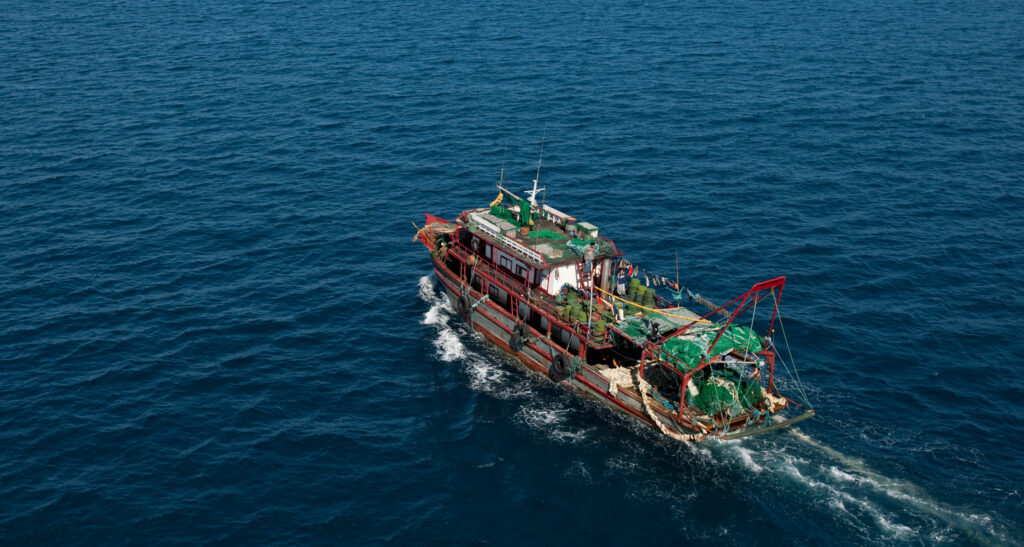World Fisheries Day, observed annually on November 21, is an opportunity to reflect on the importance of fisheries around the world, the threats to their sustainability, and the urgency with which we need to act to protect them. The global failure to meet the targets of Sustainable Development Goal 14.4 to end illegal, unreported and unregulated (IUU) fishing and overfishing by 2020 is a stark reminder of the work that remains to be done.
The actions of leading market States to tackle global environmental issues, including the better protection and management of our world’s oceans, are vital and need to reflect the urgency to act against IUU fishing. Since 2010, the European Union (EU) has demonstrated its global leadership through the implementation of its pioneering EU IUU Regulation (1005/2008) within the EU and externally. This has seen the EU cooperate with other States to implement reforms and take enforcement measures when dialogues fail.
The EU has also made regulatory reforms to increase transparency in its own fishing sector through the creation and implementation of its external fishing Regulation,[1] which provides tools to increase transparency of the EU fleet’s activities in distant waters.

EU Commissioner for the Environment, Oceans and Fisheries, Virginijus Sinkevičius, speaking in 2020, recognised that, “Actions to tackle IUU fishing are tangible responses to problems of cross-cutting nature, hence contributing to the achievement of the objectives of the European Green Deal and of the UN’s Sustainable Development Goals.” Since the publication of the EU Green Deal in 2020, the EU IUU Coalition has worked to demonstrate how ending IUU fishing would be one of the most impactful and cost-effective ways for the Commission to advance its agenda on marine protection.
The Coalition works to showcase the technologies and governance measures that already exist to tackle IUU fishing, with a focus on increasing the transparency of the seafood sector and its supply chains. We aim to improve the transparency and accountability of the EU fleet, minimise the malign impacts of flags of convenience in fisheries, and leverage momentum in the EU to raise international standards in fisheries transparency.
The EU has also made regulatory reforms to increase transparency in its own fishing sector through the creation and implementation of its external fishing Regulation,[1] which provides tools to increase transparency of the EU fleet’s activities in distant waters.
EU Commissioner for the Environment, Oceans and Fisheries, Virginijus Sinkevičius, speaking in 2020, recognised that, “Actions to tackle IUU fishing are tangible responses to problems of cross-cutting nature, hence contributing to the achievement of the objectives of the European Green Deal and of the UN’s Sustainable Development Goals.” Since the publication of the EU Green Deal in 2020, the EU IUU Coalition has worked to demonstrate how ending IUU fishing would be one of the most impactful and cost-effective ways for the Commission to advance its agenda on marine protection.
The Coalition works to showcase the technologies and governance measures that already exist to tackle IUU fishing, with a focus on increasing the transparency of the seafood sector and its supply chains. We aim to improve the transparency and accountability of the EU fleet, minimise the devastating impacts of flags of convenience in fisheries, and leverage momentum in the EU to raise international standards in fisheries transparency.
Today Member States should build on this work and ensure harmonised implementation of policies in the EU. And the EU, through its influence in bilateral dialogues, RFMOs and other international fora, and globally should push this agenda forward. To ensure the success of global efforts to tackle IUU fishing, the EU should lead by example in creating and maintaining the world’s most transparent and accountable fleet by fully implementing existing ambitious policies and working towards harmonisation, including on enforcement.
The EU IUU Fishing Coalition calls for the EU to:
- Mandate unique vessel identifiers, issued by the International Maritime Organization (IMO), for vessels down to 12 metres in length in line with the latest IMO eligibility criteria.
- Discourage the use of flags of convenience by EU nationals and require all vessels transferring to an EU flag to have a history of compliance.
- Ensure implementation and enforcement of measures that prohibit EU nationals, whether persons or companies, from engaging in, supporting or benefitting from IUU fishing overseas. Similarly, conduct thorough investigations when EU nationals or companies are suspected of involvement in IUU fishing.
- Strengthen transparency and traceability measures, including advocating for an aligned baseline of import control rules globally.
- Increase resources to assist with the implementation of the IUU Regulation, particularly its external IUU dialogues, and improve engagement with local stakeholders in non-EU countries with which the EU has an IUU dialogue.
- Introduce mandatory remote electronic monitoring, through EU’s revised Control Regulation, on board vessels to verify legality at the point of catch and protect against overfishing and bycatch of threatened and endangered species.
The EU IUU Fishing Coalition also encourages all governments to review our recommendations on improving transparency and good governance and consider adopting those not already implemented. These have been adapted from countries’ best practices, the Fisheries Transparency Initiative (FiTI) Standard, relevant Food and Agriculture Organization of the United Nations (FAO) instruments including the Code of Conduct for Responsible Fisheries. IUU fishing is a global challenge which needs a global response, the transparency and good governance measures outlined above will help close the net on those not fishing sustainably and allow for greater transparency on a global commons resource.
[1] The EU Regulation on the Sustainable Management of External Fishing Fleets (SMEFF)
